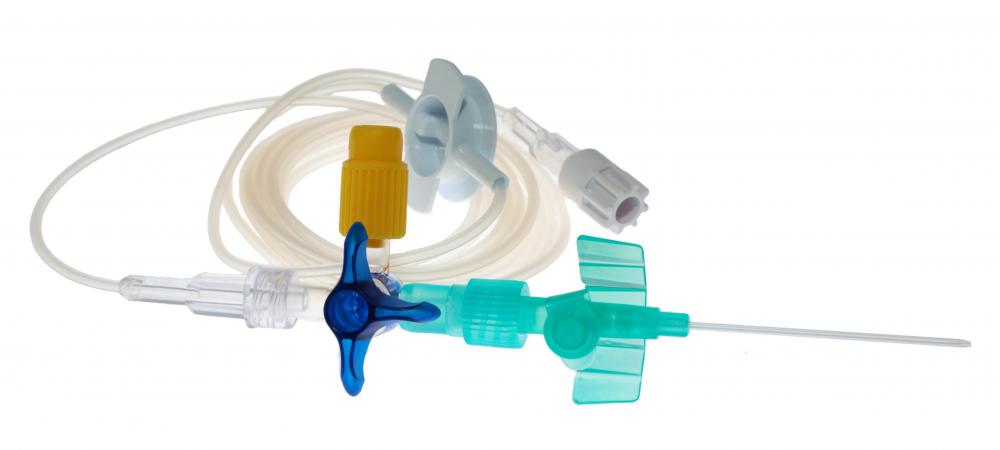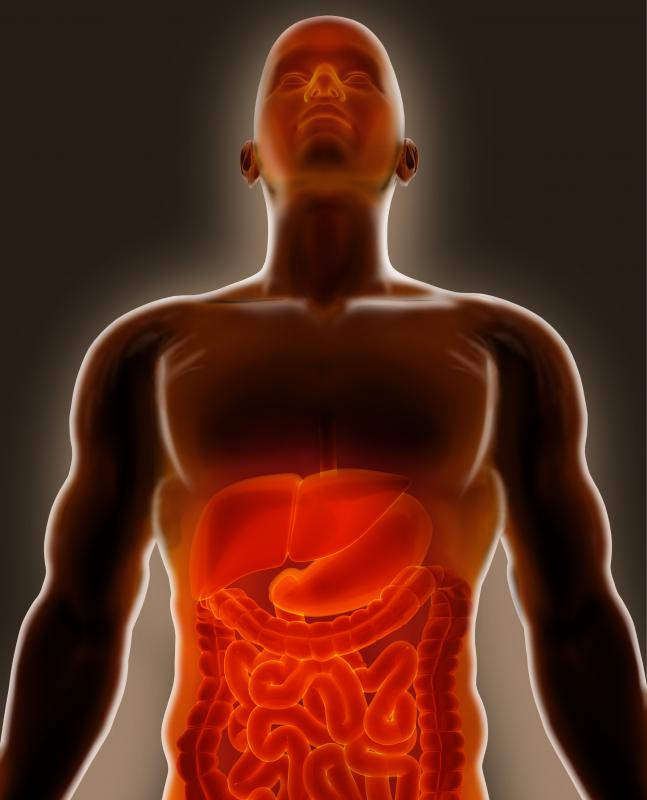At WiseGEEK, we're committed to delivering accurate, trustworthy information. Our expert-authored content is rigorously fact-checked and sourced from credible authorities. Discover how we uphold the highest standards in providing you with reliable knowledge.
What is Total Parenteral Nutrition?
For some people, illness or injury can prevent normal ingestion of food and drink. This means that, for some reason, they cannot eat or drink or are unable to digest or excrete food in the normal way. When this occurs, total parenteral nutrition might be given in order to provide the person with the nutrients he or she needs. Total parenteral nutrition (TPN), or intravenous feeding, is a complete food replacement for people who cannot eat at all. By contrast, partial parenteral nutrition is provided for people who can eat food in small amounts but cannot eat enough to supply all of the nutrients and calories they need.
Parenteral nutrition is administered via an intravenous catheter inserted into a peripheral location such as the hand or arm. People who need partial parenteral nutrition typically are given a solution of glucose and emulsified fats. This is intended as a food supplement and provides enough calories to make up for what the patient cannot eat, but it does not contain nutrients such as vitamins and minerals.

When a person requires total parenteral nutrition, he or she has more extensive nutritional requirements because of the inability to eat any food at all. This means that in addition to calories supplied by fats and glucose, he or she also requires protein, electrolytes, vitamins and minerals. Essentially, the person must receive all of the nutrients normally gained from his or her daily food intake.

If someone must receive total parenteral nutrition for an extended period of time, an additional requirement is that the nutritional supplement be of a high-protein formulation. This is important because plenty of protein is needed in the diet to ensure that the body does not break down muscle tissue to use for energy. For example, someone with Crohn’s disease or someone who has a bowel obstruction or has had bowel surgery might need this type of parenteral nutrition. In these cases, parenteral nutrition is needed to allow the digestive tract time to heal after it has been damaged by surgery, injury or disease.
Most people receive total parenteral nutrition on a temporary basis in a hospital setting. For someone who needs parenteral nutrition on a long-term basis, it is impractical to spend the entire time in hospital. After a catheter has been inserted by a medical professional, the person can return home and administer her or her own parenteral nutrition as needed.
There are some risks associated with the use of parenteral nutrition. The most common risk is of bacterial or fungal infection at the catheter site. This risk is slightly increased for people who use parenteral nutrition at home. The risk can be reduced by keeping the catheter insertion site clean and dry. People who receive total nutrition also have an increased risk of gallbladder disease because of their disuse of the gastrointestinal tract.
AS FEATURED ON:
AS FEATURED ON:












Discuss this Article
Post your comments